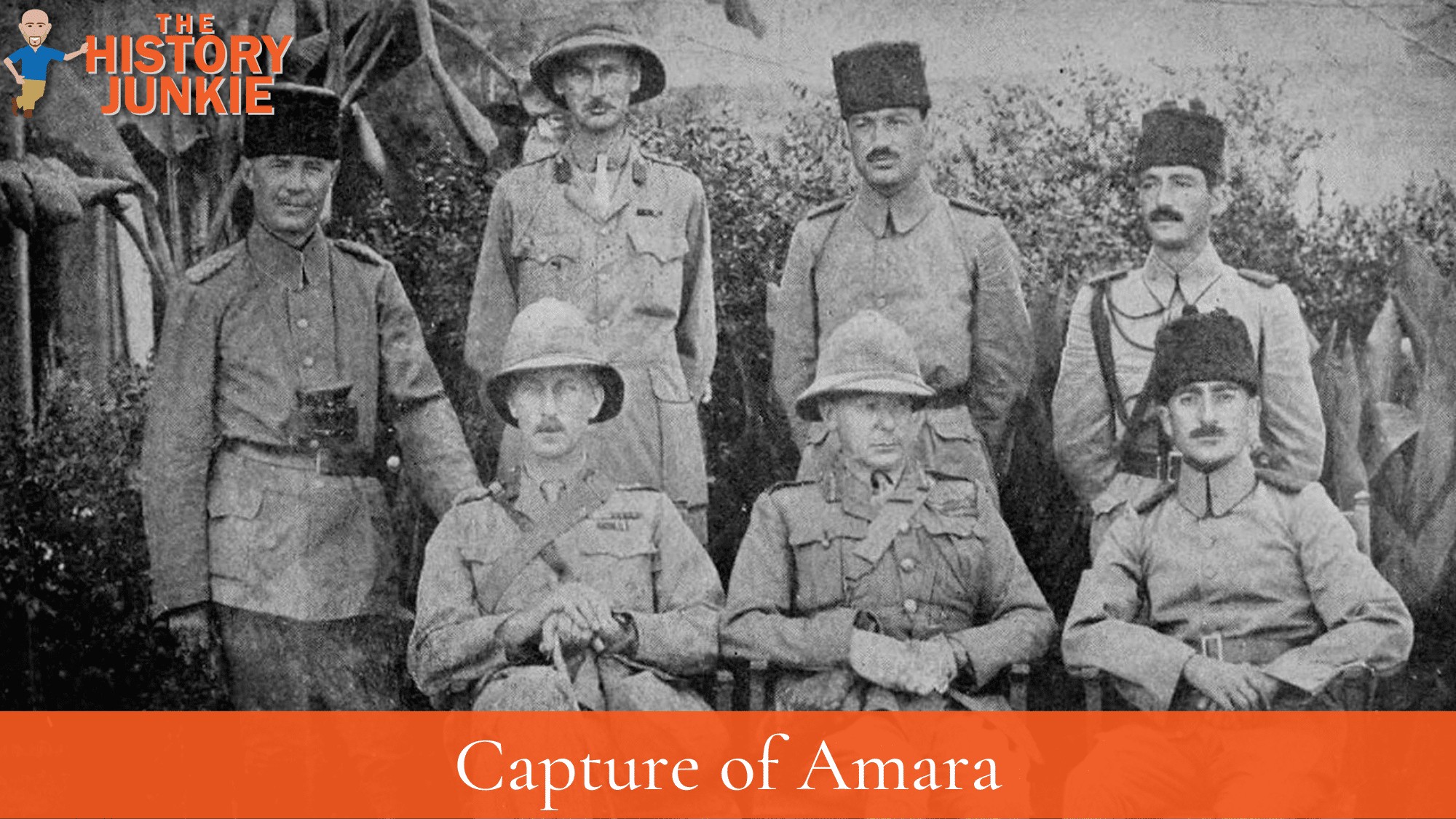The battle of Amara in late May 1915 was a significant victory for the British and their commander, Sir Charles Townshend. It would again increase their presence in Mesopotamia during World War 1.

Amara, an important commercial center on the Tigris River, was 100 miles north of Qurna, which British forces had captured in December 1914.
Jump to:
Background
Land flooding to a depth of three feet made travel between the two cities difficult, and only shallow-draft boats could navigate the waters.
Despite the London War Office's wishes for a more cautious approach, the newly arrived regional British Commander-in-Chief, Sir John Nixon, was determined to continue the Indian administration's policy of "forward defense."
Nixon and the Indian government favored an aggressive strategy, while the War Office wanted to protect British oil interests in the region.
However, Nixon, buoyed by the success of repulsing a Turkish offensive at Shaiba in April 1915, argued persuasively that unless Amara was seized, the British headquarters at Basra would be under potential threat.
The Indian administration quickly agreed, but the government in London was more reluctant.
Despite a shortage of equipment and supplies, notably medical supplies, Nixon authorized the newly arrived Sir Charles Townshend to begin operations.
A haphazard fleet of 500 flat-bottomed boats was assembled, each carrying as much artillery as it could safely bear, including machine guns and mountain guns.
The Battle
On May 31, 1915, Townshend's operation quickly secured Turkish outposts. The following day, reconnaissance aircraft reported that the main Turkish force at Ruta had moved north towards Amara.
Townshend promptly decided to pursue them, boarding the Espeigle and designating it his headquarters. With Royal Navy support, Townshend's "regatta" set off quickly in pursuit.
Leaving his supporting infantry far behind, Townshend paused on the evening of June 1st when his force sighted the rear of the Turkish force.
Continuing the next day, Townshend passed abandoned Turkish shipping, which augured well. He decided to proceed and arrived in Amara on the afternoon of June 3rd with a tiny advance force of 100 British sailors and soldiers.
The garrison of 2,000 there surrendered, convinced that a hefty British army was shortly to arrive. Townshend maintained the bluff throughout the day and was joined by his main force the following day.
Townshend's reputation soared as news of the spectacular capture of Amara spread.
It also encouraged Nixon to aggressively push further up the Tigris, in spite of tightly stretched supply lines and extreme shortages of equipment.
